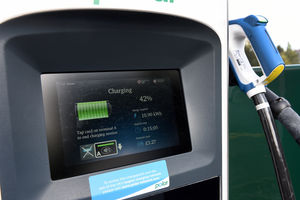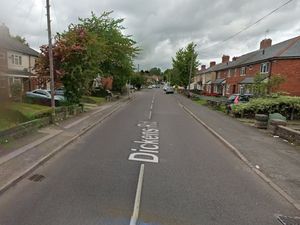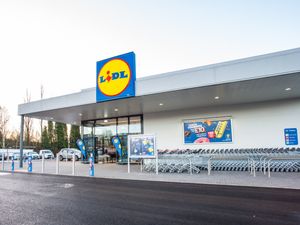Six more electric car charging points coming to Wolverhampton
The number of electric vehicle charging points in Wolverhampton is set to double by the end of the month, it has been revealed.

Six charging points already exist in the city, but Councillor Steve Evans, the council’s cabinet member for city environment, said six more would be installed to allow electric car owners living in the districts easy access to charge their vehicles.
The council’s cabinet panel approved a budget of £130,000 in grant funding from the Black Country Local Enterprise Partnership to finance the city’s part in the ongoing Black Country Ultra-Low Emission Vehicle programme.
Councillor Evans told members: “Electric vehicles are coming and it’s only right that we go for this grant.
"Six new charging points that will take in all of the city will be installed this month to add to the six we already have.
“Electric vehicle chargers are now much more efficient. Motorists can charge their cars for 20 minutes and do 300 miles, whereas before it could take four hours and you’d only get 50 or 60 miles out of it.
“In light of the city council declaring a climate emergency, I’m very pleased to announce this news as we continue to lead the way in reducing carbon emissions.
“In the West Midlands alone some 1,500 deaths are caused by poor air quality each year. That includes around 650 deaths in the Black Country with approximately 140 of those occurring in Wolverhampton,” he added.
"ULEVs, such as electric vehicles, produce 40 per cent less carbon emissions during their lifecycle than conventional petrol or diesels.
Converting the council’s fleet of vehicles to ULEVs would save 2,952 tonnes of carbon each year – equivalent to 15 per cent of its total yearly CO2 output.
In the city as a whole, transportation accounts for 31 per cent of total yearly carbon emissions, the majority of which comes from road traffic.
Councillor Evans also welcomed plans to plant new trees across the city in a further drive to offset carbon emissions in the air.
Wolverhampton’s transition towards cleaner transportation forms part of the Government’s Industrial Strategy to tackle climate change and local air pollution, whilst aiming to bolster local economies.





